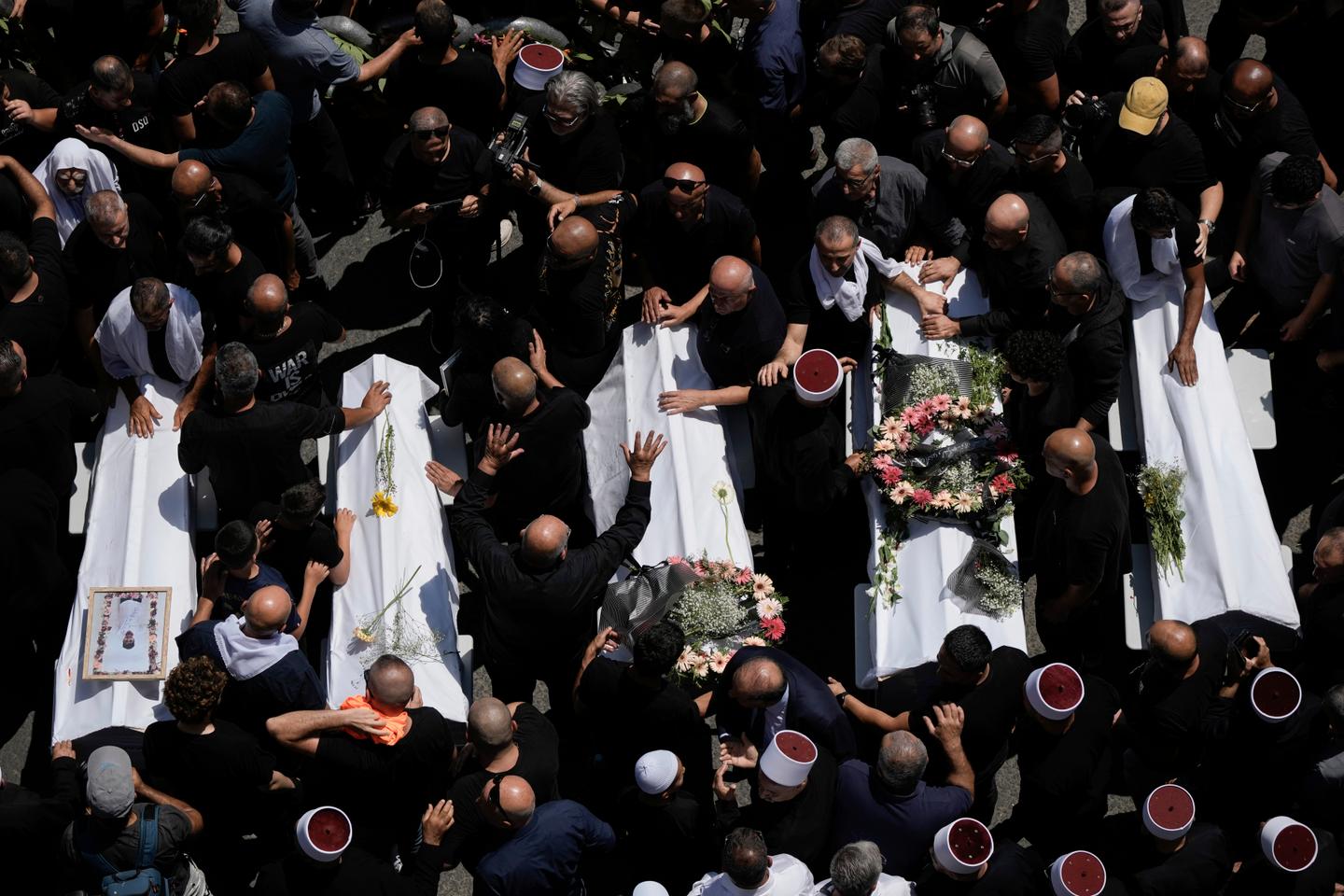The Israeli response is certain, but it still had not happened on the morning of Monday, July 29. There is a risk that Israel might tip over into a wider conflict with Lebanon-based Hezbollah, two days after a rocket attributed to the Shiite movement killed 12 children and teenagers and wounded 29 on a football pitch in Majdal Shams, a Druze town on the occupied Golan Heights.
In the eyes of the Israeli government, the attack legitimizes a change in the scale of the conflict, and makes more feasible the plans for strikes that it has been weighing up for months. On Monday, the whole of Lebanon was nervously waiting for the response. Flights to Beirut’s international airport, the only one in the country, were canceled or delayed.
The conflict that has been going on since October 7, 2023 as an echo of the war in Gaza has left 160,000 people displaced on both sides of the Israeli-Lebanese border, 527 dead in Lebanon, including 104 civilians, according to a tally by Agence France-Presse, and 46 dead in Israel, half of them soldiers. Hezbollah sought to limit its attacks mainly to military targets, but the intensity of its fire made major civilian casualties in Israel inevitable sooner or later.
Iranian-made missile
The Israeli army acknowledged that there is little chance that Hezbollah intentionally struck this town in the part of the Golan Heights conquered by Israel from Syria in 1967 and annexed in 1981, many of whose inhabitants refuse Israeli nationality. But Israel has identified the Iranian-made missile, a Falaq-1, and named a Hezbollah commander stationed in the Sheba region as being responsible.
Hezbollah has responded to incessant, methodical fire against its men with salvos of rockets and drones, up to around 200 simultaneously, and up to 40 kilometers from the border. This was the case on Saturday. After an Israeli strike that killed four of its fighters in Kfar Kila, southern Lebanon, the “Party of God” claimed responsibility for a series of attacks, notably against the headquarters of the Hermon brigade, near Majdal Shams, which it regularly targets.
However, a Hezbollah spokesman denied that the movement was responsible for the killing of the civilians. Social media accounts close to the Lebanese Shiite movement suggested that the incident was caused by a malfunction of the Iron Dome, the Israeli system designed to intercept rockets launched on its territory.
Several scenarios discussed
Hezbollah has been careful to secure the support of other communities in Lebanon for its decision to lead a “support front” for Hamas in the Gaza Strip against Israel, at the risk of confrontation with the Israelis. On Sunday, the head of Lebanon’s Druze community, Walid Joumblatt, reiterated his support for the Shiite movement, absolving it of any responsibility for the deadly incident in Majdal Shams. He called on the Lebanese authorities and US special envoy Amos Hochstein to achieve a ceasefire in southern Lebanon.
You have 63.98% of this article left to read. The rest is for subscribers only.

